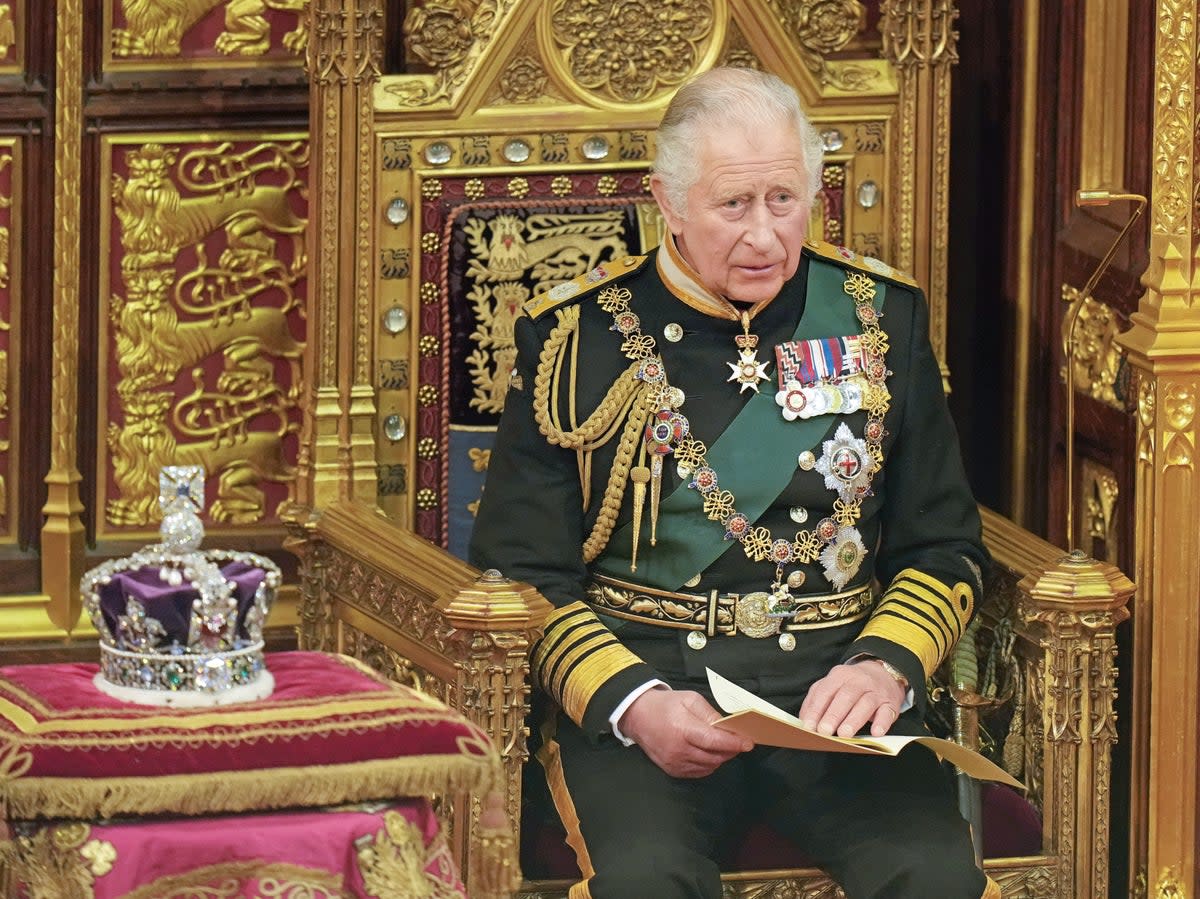What is Accession Council? King Charles’s proclamation ceremony to be televised live

- Oops!Something went wrong.Please try again later.
Charles III will be formally proclaimed King at a special Accession Council ceremony at St James’s Palace at 10am on Saturday when the ceremony will be televised for the very first time.
Charles automatically became King on the death of his mother Queen Elizabeth II, but an Accession Council is convened as the next major order of business soon after the death of a sovereign.
Buckingham Palace said it will begin at 10am on Saturday – and confirmed that cameras will be allowed inside the state apartments to capture the proceedings for the first time in British history.
A principal proclamation declaring Charles the new King will be read by the Garter King of Arms in the open air from the balcony overlooking St James’s at 11am.
It will be followed by a flurry of proclamations around the country, the second one coming in the City of London at the Royal Exchange at midday, and further proclamations in Scotland, Northern Ireland and Wales at midday on Sunday.
In recognition of the new sovereign, union flags will be flown at full mast for 24 hours, from the time of the first proclamation until one hour after the proclamations in Scotland, Northern Ireland and Wales on Sunday. They will return to half-mast for the rest of the 10-day mourning period.
Historically the entire Privy Council – senior figures in the British establishment – is summoned to the Accession Council to oversee the formal proclamation of a new monarch.
But with the huge number of privy counsellors now in place, lifetime members and mostly past and present politicians, now standing at more than 700, restrictions have been put in place.
Just 200 will be summoned, and those cut will be asked to enter an annual ballot for a few remaining seats, prompting a recent row over the lack of consultation and the loss of key duty.
So who is present at the special ceremony and who plays key roles? Conservative MP Penny Mordaunt will lead the proclamation ceremony for Charles after Liz Truss appointed her both Commons leader and lord president of the Privy Council this week.
Ms Mordaunt is yet to be formally “declared” in the role because the event was postponed on Wednesday when the Queen was urged to rest.
But No 10 confirmed on Friday that the Portsmouth North MP will officiate as “acting” lord president. She will receive the title on a permanent basis after being declared so by the King.
Ms Truss and other chosen privy counsellors will gather at St James’s Palace to proclaim the new sovereign. Camilla, the new Queen Consort, and the Duke of Cornwall and Cambridge are already privy counsellors so will be present.
When the meeting begins, the lord president (Ms Mordaunt) announces the death of the sovereign and calls upon the clerk of the council to read aloud the text of the accession proclamation.
The platform party – made up of the prime minister, Camilla and William, the archbishop of Canterbury, the lord chancellor, the archbishop of York, the lord privy seal, the lord great chamberlain, the earl marshal and the lord president – then sign the proclamation.
The lord president then calls for silence and reads the remaining items of business, which deal with the dissemination of the proclamation and various orders giving directions for firing guns at Hyde Park and the Tower of London.
The second part of the process sees Charles enter and hold his first council, which is only attended by privy counsellors.
Charles will first make a personal declaration about the death of the Queen. One of his next acts will be to take the oath to preserve the Church of Scotland, since in Scotland there is a division of powers between church and state.
He will read it out loud and sign two identical instruments recording the taking of the oath, with his signature witnessed by Camilla, the Duke of Cornwall and Cambridge, and others – including the Scotland secretary Alister Jack and the Scottish first minister Nicola Sturgeon.
The Privy Council is the oldest form of legislative assembly still functioning in the UK, dating back to the time of the Norman kings when the monarch met in private – hence the description “privy” – with a group of trusted counsellors.
Meetings take place with members standing up throughout. Queen Victoria is believed to have started the convention in 1861 following the death of her beloved consort Prince Albert when she wished to reduce her public duties to the minimum necessary.

